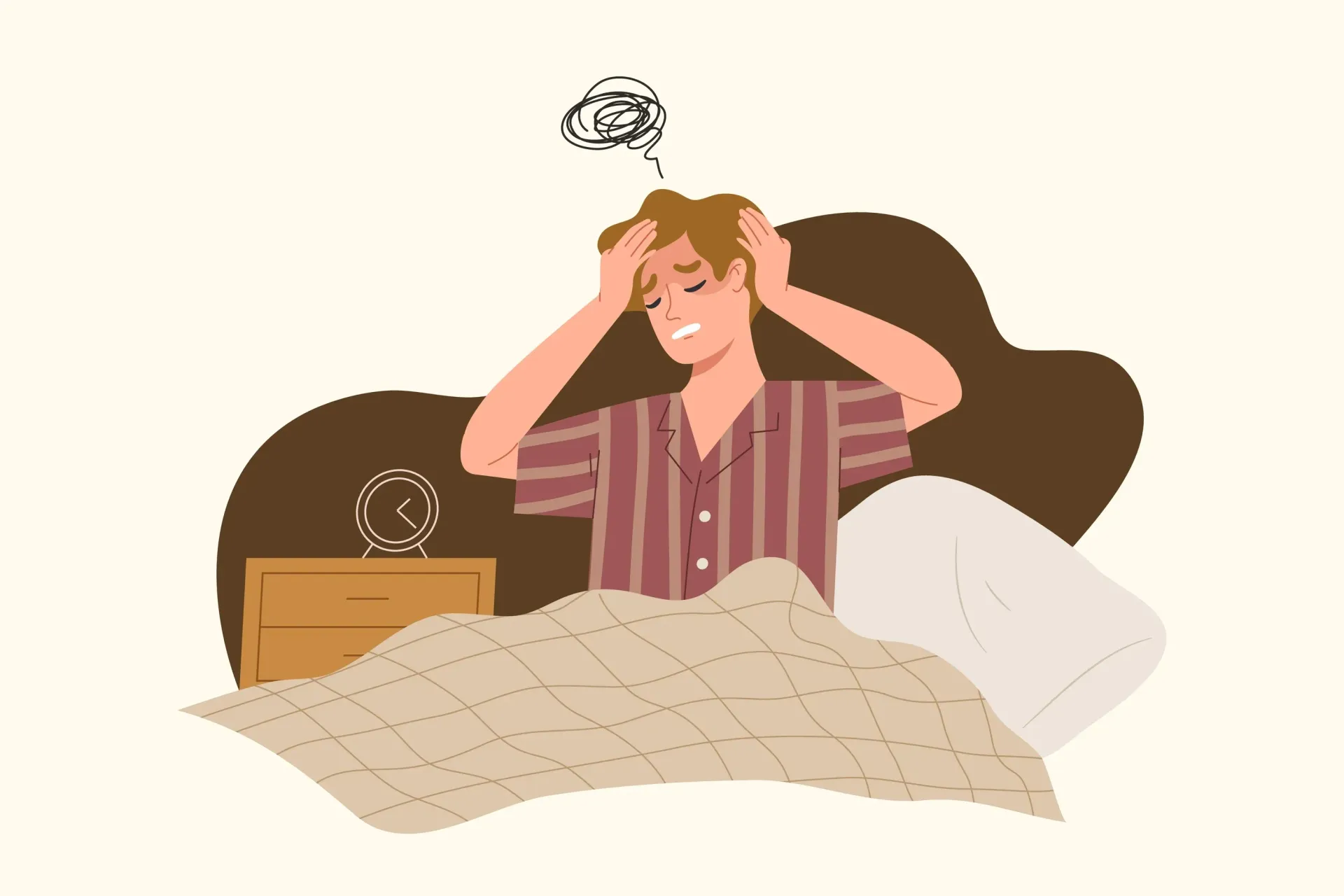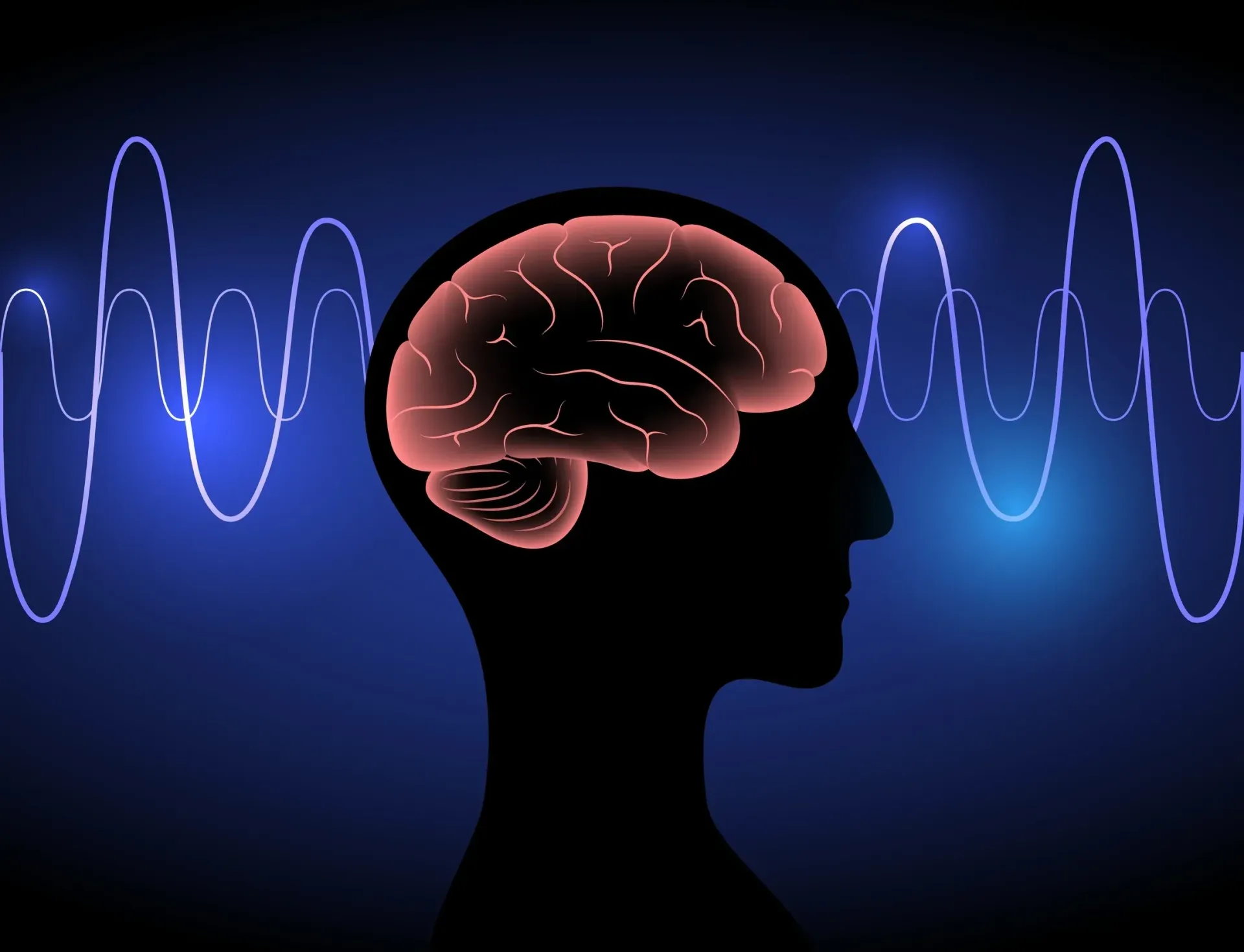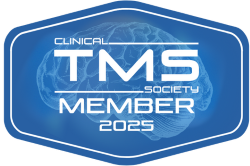
JOIN US! TMS Education Event - Tuesday, April 9th 5:30pm pst - Click to learn more!
Improving Sleep With TMS: Addressing Insomnia
Sleep disorders can have far-reaching consequences on overall health and well-being. They encompass a range of conditions, including chronic insomnia, sleep apnea, restless legs syndrome, and circadian rhythm disorders, and are linked to significant downstream health concerns.
Despite affecting millions of people worldwide, traditional treatments for sleep disorders often fall short in providing relief. This has led to a growing interest in alternative approaches, with
Transcranial Magnetic Stimulation (TMS) emerging as a particularly promising and innovative solution. Originally developed for treating depression, TMS has shown real potential in addressing a variety of neurological and psychiatric conditions.
TMS aims to modulate activity in regions of the brain that are associated with sleep regulation, offering a unique approach to improving sleep quality. Here, we’ll explore how TMS works on the brain to combat sleep disorders and how it can be used to alleviate key symptoms of conditions that cause restless nights.
Understanding Sleep Disorders
According to the National Council on Aging, approximately
90 million people in the U.S. suffer symptoms of insomnia. The prevalence of sleep disorders underscores the importance of finding effective treatments, but what are the main sleep disorders that people suffer from, and how do they impact daily life?
Types of Sleep Disorders
There are various types of sleep disorders, each with its own set of symptoms. Among the most common are as follows:
1. Chronic Primary Insomnia: This condition is characterized by difficulty falling asleep, staying asleep, or both, despite adequate opportunities for sleep. It affects about 10% of adults in the U.S. and is considered chronic when it persists for at least three months.
2. Obstructive Sleep Apnea (OSA): OSA is a potentially serious disorder where breathing repeatedly stops and starts during sleep due to blocked airways. It's estimated that 25 million adults in the U.S. have OSA, with many cases going undiagnosed.
3. Restless Legs Syndrome (RLS): This neurological disorder causes an irresistible urge to move the legs, often accompanied by uncomfortable sensations. It affects about 7-10% of the U.S. population and can significantly disrupt sleep patterns.
The Knock-On Effects of Sleep Disturbances
Beyond nighttime discomfort, sleep disorders can have profound effects on a person’s mental wellbeing and mood throughout the day.
Poor sleep quality and chronic sleep deprivation are strongly associated with an increased risk of developing depression and anxiety. Likewise, individuals with existing mental health conditions can often experience sleep problems as a symptom of their disorder.
Up to
75% of people with depression experience some form of insomnia. The relationship is often bidirectional – poor sleep can exacerbate depression symptoms, while depression can make it more difficult to achieve restful sleep. Similarly, anxiety disorders can lead to racing thoughts and heightened arousal at bedtime, making it challenging to fall asleep.
These sleep disturbances can impact cognitive function, emotional regulation, and overall quality of life. Chronic sleep deprivation has been linked to increased irritability, mood swings, difficulty concentrating, and reduced ability to cope with stress.
Transcranial Magnetic Stimulation (TMS) Explained
As traditional approaches like medication and cognitive behavioral therapy may not work for everyone, TMS has been explored as an alternative treatment option for improving sleep quality and addressing related mental health concerns.
TMS is a non-invasive brain stimulation technique that uses magnetic fields to target specific areas of the brain. It uses targeted magnetic pulses, which are administered through a coil placed on the scalp, to generate small electric currents in the targeted brain regions.
Using this mechanism, TMS is able to activate specific neural pathways in the brain and modulate key circuits. When applied repetitively (known as
repetitive TMS or rTMS), transcranial magnetic stimulation can induce lasting changes in brain function.
For individuals with sleep disorders, TMS typically targets areas of the brain associated with sleep regulation and mood. The primary target is often the dorsolateral prefrontal cortex (DLPFC), particularly the left DLPFC, which plays a crucial role in executive function, mood regulation, and sleep-wake cycles.
By modulating activity in the DLPFC, TMS can help to normalize sleep patterns and improve overall sleep quality and simultaneously help to reduce symptoms that are associated with related mental health conditions.
Improving Sleep with TMS
TTMS improves sleep patterns by virtue of several interconnected mechanisms that influence brain activity. Understanding these mechanisms provides insight into why TMS has emerged as a promising treatment for various sleep disorders
TMS can:
1. Enhance slow-wave activity: TMS contributes towards the production of slow brain waves, which are associated with deep, restorative sleep.
2. Regulate neurotransmitter levels: TMS affects the release of neurotransmitters like serotonin and dopamine, which are involved in sleep regulation and mood.
3. Modulate cortical excitability: By altering the excitability of neurons in targeted areas, TMS can potentially reset disrupted sleep-wake cycles.
4. Influence connected brain circuits: Stimulation of the DLPFC can have downstream effects on other brain regions involved in sleep regulation, such as the hypothalamus.
How it Works
At its core, TMS works by modulating brain activity in specific regions associated with sleep regulation. When applied to areas like the dorsolateral prefrontal cortex (DLPFC), TMS can alter cortical excitability, which refers to the ease with which neurons in the cerebral cortex can be activated. This modulation of cortical excitability is crucial for sleep improvement, as it can help reset disrupted neural patterns that contribute to sleep disturbances.
One of the key effects of TMS on sleep is its impact on slow wave activity and slow wave sleep. Slow wave sleep, also known as deep sleep, is characterized by the presence of high-amplitude, low-frequency brain waves. This stage of sleep is crucial for physical restoration, memory consolidation, and overall sleep quality. TMS has been shown to enhance slow wave activity, effectively increasing the amount of deep sleep that a person gets.
The mechanism behind this enhancement of slow wave activity is multifaceted. TMS can directly induce slow oscillations in the cortex, mimicking the natural slow waves that occur during deep sleep. Additionally, by modulating the activity of cortical neurons, TMS can create conditions that are more conducive to the propagation of slow waves across the brain.
Additionally, TMS is known to induce neuroplasticity, which is the ability of neural networks to change through growth and reorganization. This neuroplastic effect can lead to longer-lasting changes in sleep-related brain circuits, potentially providing sustained improvements in sleep quality even after the treatment course has ended.

Research and Studies on TMS for Sleep Disorders
There has been a growing body of scientific research exploring the efficacy of TMS for treating sleep disorders in recent years. This research includes randomized controlled trials (RCTs) and sham-controlled pilot studies, which are crucial for establishing the legitimacy and effectiveness of TMS as a treatment option.
Several notable studies have focused on the use of TMS for insomnia, one of the most common sleep disorders. A randomized, sham-controlled
study published in the Korean Sleep Research Society in 2023 investigated the effects of repetitive TMS (rTMS) on chronic insomnia. The study found that active rTMS treatment resulted in significant improvements in sleep efficiency and total sleep time compared to the sham treatment group.
Another important area of research has been the use of TMS for sleep disturbances associated with major depressive disorder (MDD). A 2023 randomized, double-blind, sham-controlled study from
Lanza et. al examined the effects of rTMS on sleep in patients with MDD. The results showed that active rTMS treatment led to significant improvements in subjective sleep quality and reduced insomnia severity compared to sham treatment.
Future Directions in TMS Sleep Research
The future of TMS sleep research is promising and multifaceted, with several exciting directions emerging. Our understanding of sleep disorders and brain function continues to evolve, which has led researchers to explore new ways to optimize and expand the use of TMS for various sleep pathologies.
Emerging studies are investigating the optimal stimulation parameters of TMS devices for treating sleep disorders, including the frequency, intensity, and duration of treatment. For instance, a recent pilot study published in the
Journal of Clinical Sleep Medicine explored the use of accelerated TMS (aTMS) protocols for treating sleep disorders.
Accelerated TMS involves multiple sessions per day over a shorter overall treatment period. This approach can lead to faster improvements in sleep quality and make TMS more accessible to patients — reducing travel times to treatment clinics and minimizing disruptions to the patient’s routine.
Researchers are also expanding the application of TMS to a broader range of sleep pathologies. While much of the current research focuses on insomnia and sleep disturbances related to depression, future studies are likely to explore the efficacy of TMS for other sleep disorders including narcolepsy, circadian rhythm disorders, and parasomnias.

A Final Word from Kind Health TMS
Transcranial Magnetic Stimulation (TMS) represents a promising frontier in the treatment of sleep disorders, particularly insomnia. As our understanding of normal brain functioning evolves, TMS is emerging as a valuable tool in the arsenal against persistent sleep issues — offering hope to those who have found limited success with traditional treatments.
Kind Health TMS specializes in administering TMS treatment for a variety of mental health concerns, including sleep disorders. By employing the latest neuroimaging techniques to guide TMS targeting, we are able to provide highly personalized TMS treatment protocols.
If you or a loved one suffers from chronic sleep disruption, reach out to
Kind Health TMS today for a consultation. While not a magic bullet, TMS offers a new avenue of hope that can help more people achieve the restorative sleep that is so crucial for health and well-being. As research progresses and treatments are refined, we move closer to a future where peaceful, rejuvenating sleep is within reach for all.

Meet the Author
Dr. Georgine Nanos, MD, MPH
Founder of Kind Health Group
If this is a life-threatening emergency, please call 911 or the National Suicide Prevention Lifeline
















































